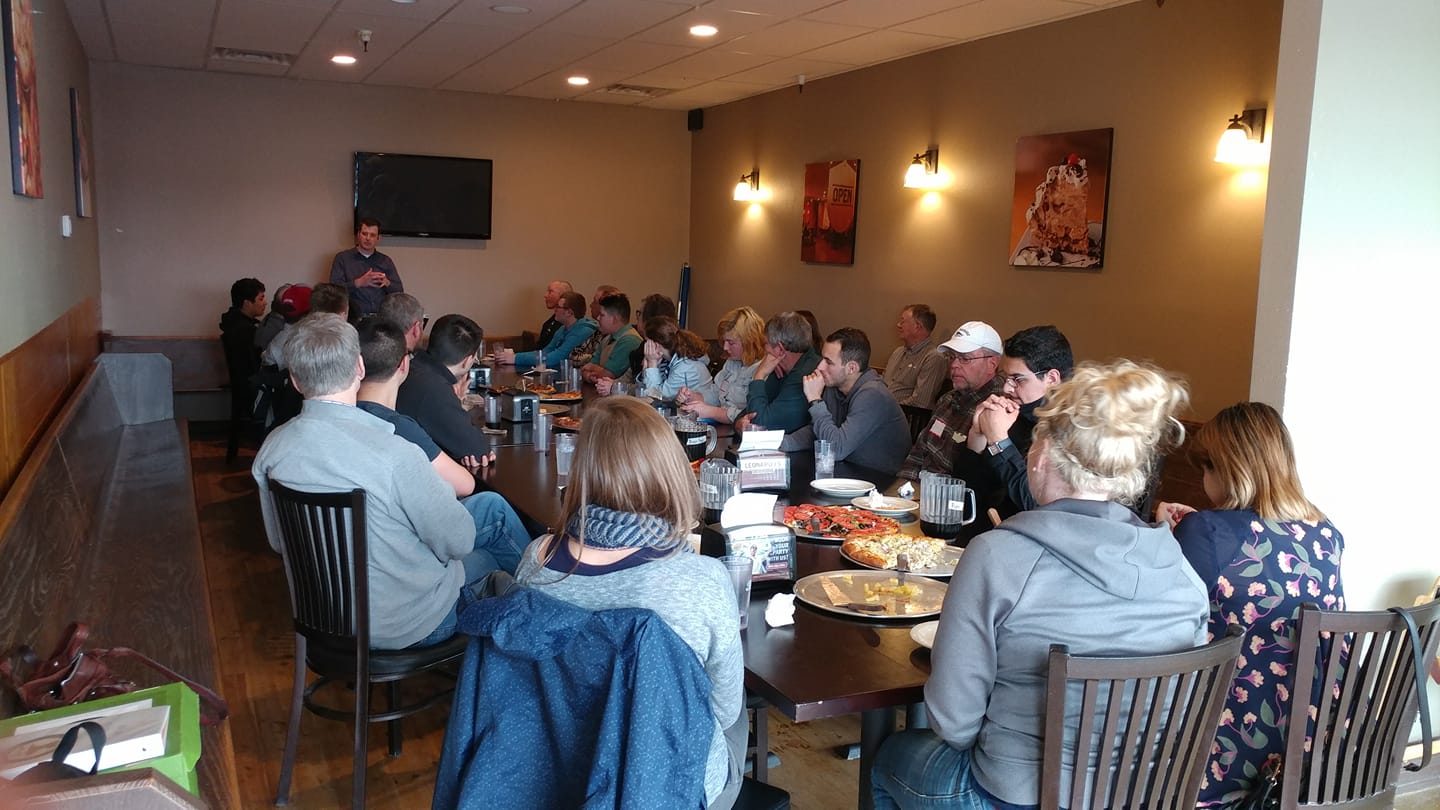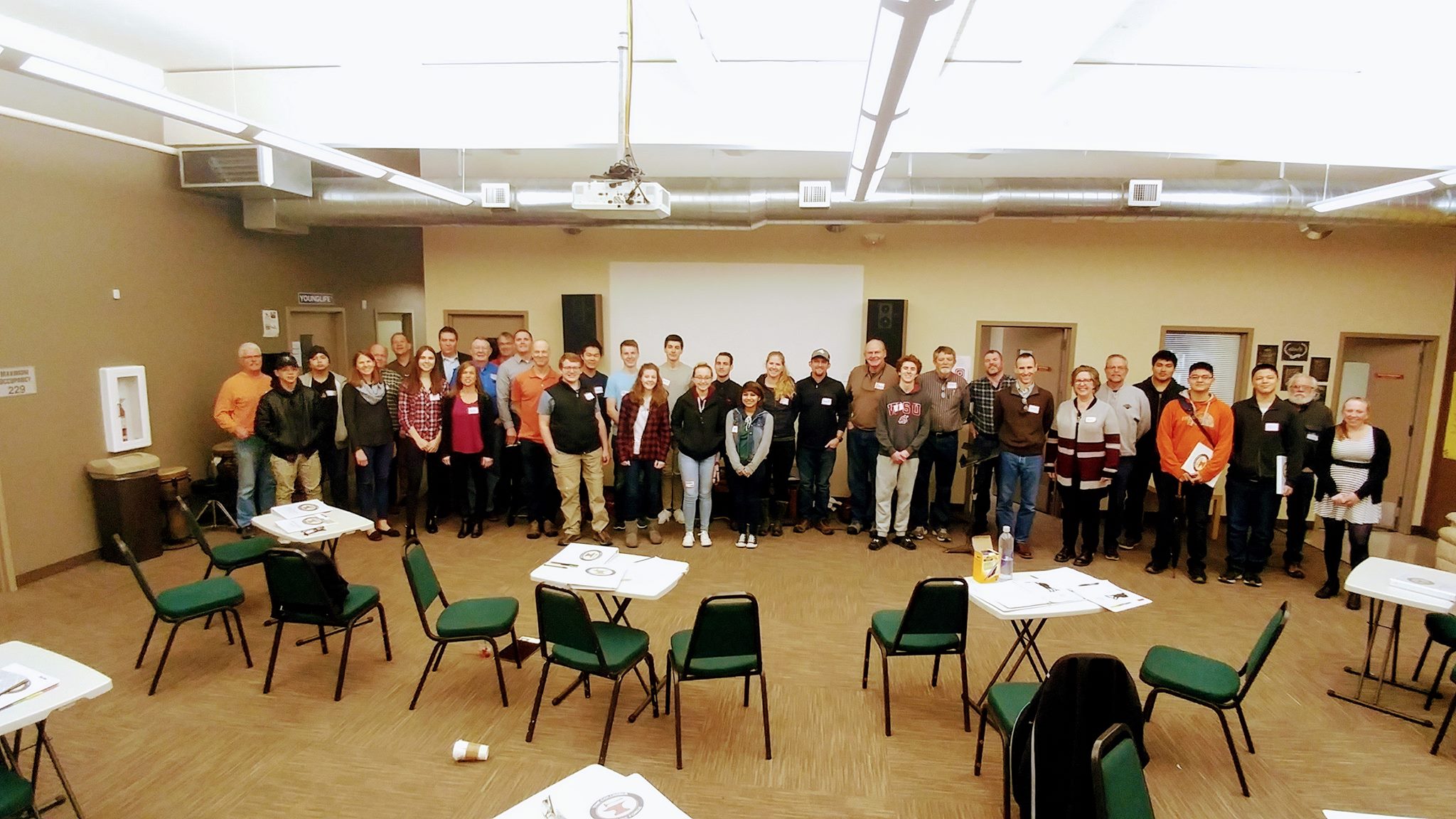Graduation Day...Awesome!
Matthew Overton
Every year as I do ministry there are certain days that I look forward to and certain days that are stressful, but well worth every ounce of effort. Last Sunday was a bit of both. The student job skills/life skills ministry that I created had it's annual meal and certification. It's a day when our mentors and students (Blacksmiths and Apprentices as we call them) come together to feast, share, and celebrate all the fruit that we have seen in our program. We started with 23 students and finished with 20. It was an amazing process as usual. Let me share a few of the highlights.
-One student shared that their mentor, who has been one of our best youth leaders at our church, is an amazing human being. They shared openly that they have never had healthy adults in their lives and that they were really grateful for their mentor. This student will be coming on our youth service trip at our church this year for the first time.
-Another shared that their mentor seemed like a mirror 20 years into the future and that they were grateful that they could learn from their mistakes in career and money.
-A student with difficulty in social interaction shared that they have done a lot of technology programs before, but that in our drone program they realized that they have never treated their instructors as people. They have treated them as things that were there to give them something. I was floored.
-An adult shared how they blew it this year. They admitted that when they started as a Blacksmith in our program they treated like a program rather than an opportunity for human relationship. They think they drove their student off. I don't agree, but it was amazing to see a grown adult in our world own a mistake for a change in front of teenagers.
-A student, who came into our program making sure we knew they were an atheist, was deeply thankful that their mentor challenged them to look at their HIGHLY materialistic goals and ask the question, "Why?" over and over again. They are starting to see that self-actualization and achievement that does not take one's neighbor into account can be pretty empty.
-One student shared that they have never realized that they could accomplish goals before. She described her mentor/blacksmith as someone who is an excellent listener. She talked about engaging her first drama performance at school because of their relationship and how she has taken the first step to cosmetology school. She has discovered that she has agency. A year ago she was massively depressed.
-Another student spoke out loud. This would have been impossible two years ago. They are reading the gospels for the first time.
-One student, who used to be very shy, spoke with great confidence and relayed how they have learned to navigate conflict for the first time and that they are a respected member of their staff at a local fast food chain. They are about to join the Army. It was a hard decision, but we made sure not to get in the way of that choice and cheered for them as we sat around the table.
-Many adults shared as well. They discovered things about teens and their experience that they hadn't known. They talked about the progress they made on their own personal goals because they were accountable to the students as well. Some of them talked about the deep respect they have for what some of their students carry day in and day out. Some talked about realizing that the context that they grew up in was vastly different than that of their students. I have felt all along that this ministry was just as much about the adults as the teens involved.
All I can say is that I felt that we were sitting around a Passover table despite the Hawaiian pizza and video game sounds coming from the mini arcade in the next room. What I saw and heard was the sound of glory. Not our glory, but God's glory. Irenaeus once said, "The glory of God is a human being fully alive." I saw the glory of people coming alive. I think Jesus was delighted with what was happening in that room on Sunday. It has been worth every ounce of blood, sweat, and tears. It has been worth every bit of risk.
Let's create some new ways of doing youth ministry...and ministry in general.








